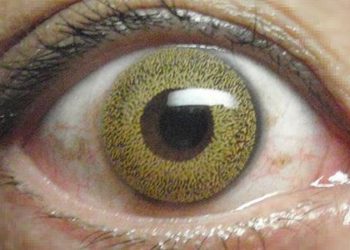The Scan by 2 Minute Medicine®: Shoulder scalpel, shark scare, Alzheimer dosing tweak, and a Blenrep blow
The Scan by 2 Minute Medicine® is a pop-culture medical newsletter and exclusive benefit for 2 Minute Medicine Plus subscribers.
Will Levis’s shoulder surgery puts NFL fans and weekend warriors on AC-joint alert
On July 21 the Tennessee Titans quietly posted a team statement saying Will Levis would trade his playbook for a hospital gown on July 29 to mend a stubborn AC-joint injury. The news barely had time to breathe before NFL.com declared rookie Cam Ward the new face of first-team reps, a move that sent fantasy-football group chats into high alert. Shoulder gurus remind us that AC sprains account for roughly 11 percent of contact-sport shoulder injuries, yet only a handful ever make it to the operating room, according to a 2020 American Journal of Sports Medicine review. That rarity explains why the New York Post framed Levis’s choice as a cautionary tale for anyone who turns every offseason into a highlight reel. Meanwhile over at Sports Illustrated, analysts bumped Ward’s draft position up sixteen slots, betting his dual-threat style will juice Tennessee’s playbook. Trainers on TikTok are already slowing Levis’s throwing motion frame by frame, pointing out how repeated axial loading can turn a minor sprain into surgical scrap. Titans physicians think the quarterback could start soft-tossing by spring if rehab milestones line up, a timeline fans are greeting with cautious optimism. All told, a one-paragraph press release has reshuffled depth charts, sparked biomechanics lessons, and reminded weekend athletes to respect the little joint at the top of the shoulder.
Richard Dreyfuss’s viral-bronchitis hospitalization spotlights airborne-infection etiquette
Recently, actor Richard Dreyfuss posted an Instagram video from a hospital bed, explaining that viral bronchitis would sideline him from Tampa’s SharkCon because he “didn’t want to get anyone else sick,” a message first covered by People. Convention staff quickly revised the SharkCon schedule, issued automatic refunds, and partnered with National Geographic for livestreams so immunocompromised fans could still soak up shark science. Historical data from the Centers for Disease Control and Prevention show acute bronchitis drives about 2.7 million outpatient visits each year, underscoring how common Dreyfuss’s bug really is. Pulmonologists told Entertainment Weekly that isolating during the first forty-eight hours can cut secondary transmission by nearly one-third, making the actor’s decision textbook public-health behavior. Tampa radio stations reported local pharmacies selling out of surgical masks within a day, an off-season spike usually reserved for winter flu waves. SharkCon organizers say they will invite the Jaws star back for 2026, a promise that drew cheers in comment sections. Fans, meanwhile, flooded social feeds with reminders to cover coughs and hydrate, proof that even a canceled autograph line can teach respiratory etiquette. Let us now trade cough drops for cognitive care as we dive into Alzheimer therapeutics.
FDA pares ARIA risk with a gradual-dosing label for Eli Lilly’s Kisunla
Back on July 9 the U.S. Food and Drug Administration signed off on a new titration schedule for Eli Lilly’s anti-amyloid antibody Kisunla, starting patients on one 350-mg vial and easing upward over four months to tame amyloid-related imaging abnormalities. Lilly’s own press release reports ARIA-E fell to 14 percent with gradual dosing compared with 24 percent under the original two-vial start. A same-day Reuters story stressed that the boxed warning still bars clot-busting therapy soon after an infusion because of hemorrhage risk. The Alzheimer’s Association urged clinicians to discuss APOE ε4 genetics, pointing to TRAILBLAZER-ALZ 6 data showing carriers enjoy the biggest safety bump. With more than seven million Americans already living with Alzheimer disease, Bernstein analysts predict Kisunla uptake could climb 40 percent now that MRI schedules may relax. Hospital pharmacists are updating order sets, payers are debating reimbursement tiers, and infusion-suite managers hope the gentler start will shrink no-show rates. While Kisunla gets a smoother on-ramp, another high-profile biologic just ran into a regulatory roadblock.
FDA advisers sink GSK’s Blenrep comeback bid in multiple-myeloma combinations
A few days ago, the FDA’s Oncologic Drugs Advisory Committee voted 5-3 and 7-1 against two proposed Blenrep combinations, saying persistent corneal toxicity outweighed benefits even when belantamab mafodotin was paired with common backbones. The official FDA briefing document flagged “high ocular-event rates” and limited U.S. enrollment in key trials, undermining claims that dose tweaks would protect vision. Reuters noted GSK shares slid nearly 6 percent the next trading day as investors reset peak-sales expectations. The American Cancer Society projects about 36000 new multiple-myeloma diagnoses in 2025, a reminder that patients still need safer options. GSK’s own press statement pledged to keep working with regulators, yet analysts warn a U.S. return may wait until fresh safety data arrive in 2027. Until then, clinicians will lean on bispecific antibodies and CAR-T infusions, therapies that carry their own price and toxicity challenges.
©2025 2 Minute Medicine, Inc. All rights reserved. No works may be reproduced without expressed written consent from 2 Minute Medicine, Inc. Inquire about licensing here. No article should be construed as medical advice and is not intended as such by the authors or by 2 Minute Medicine, Inc.



![2MM: AI Roundup- AI Cancer Test, Smarter Hospitals, Faster Drug Discovery, and Mental Health Tech [May 2nd, 2025]](https://www.2minutemedicine.com/wp-content/uploads/2025/05/Untitled-design-350x250.png)




